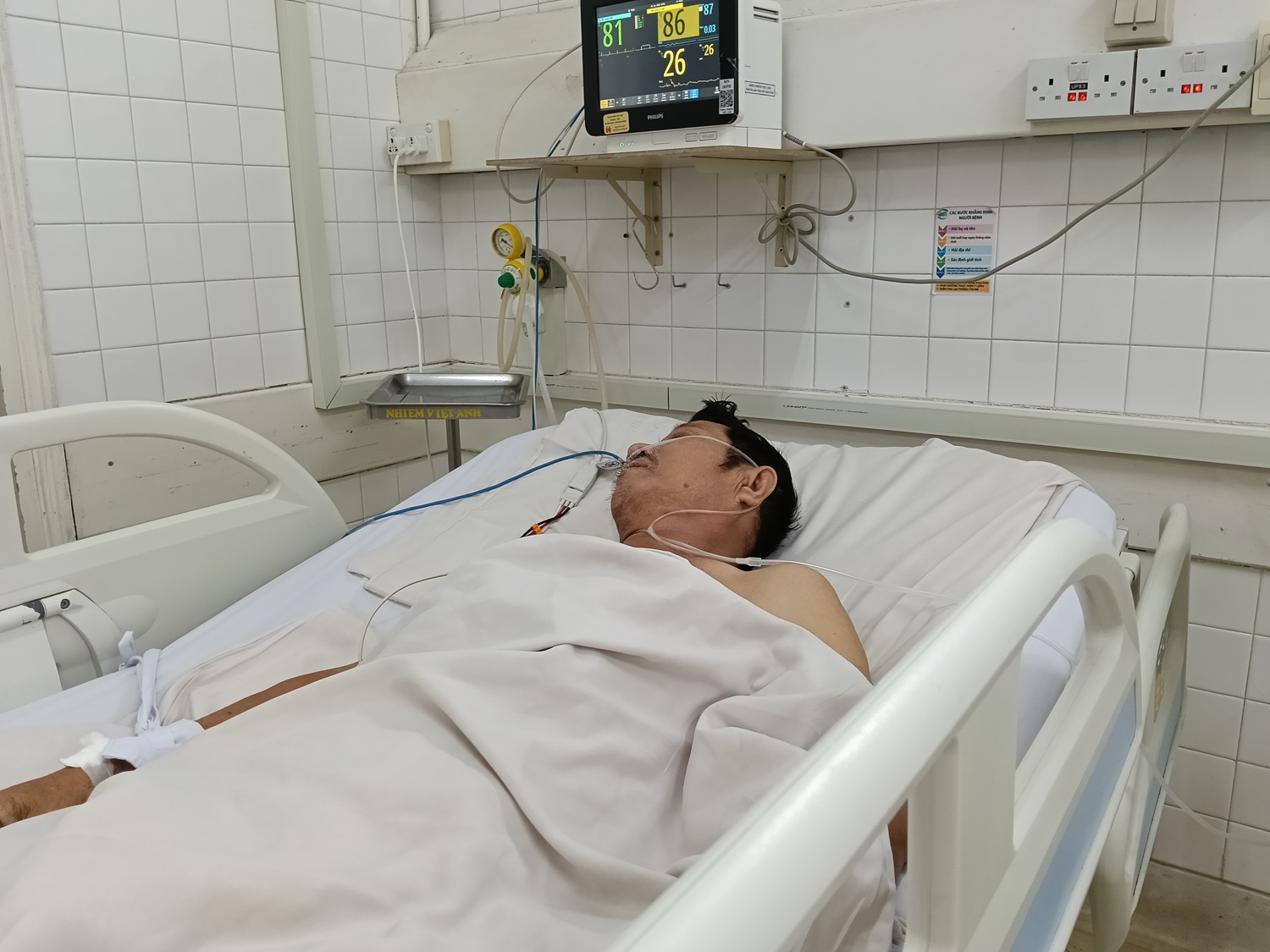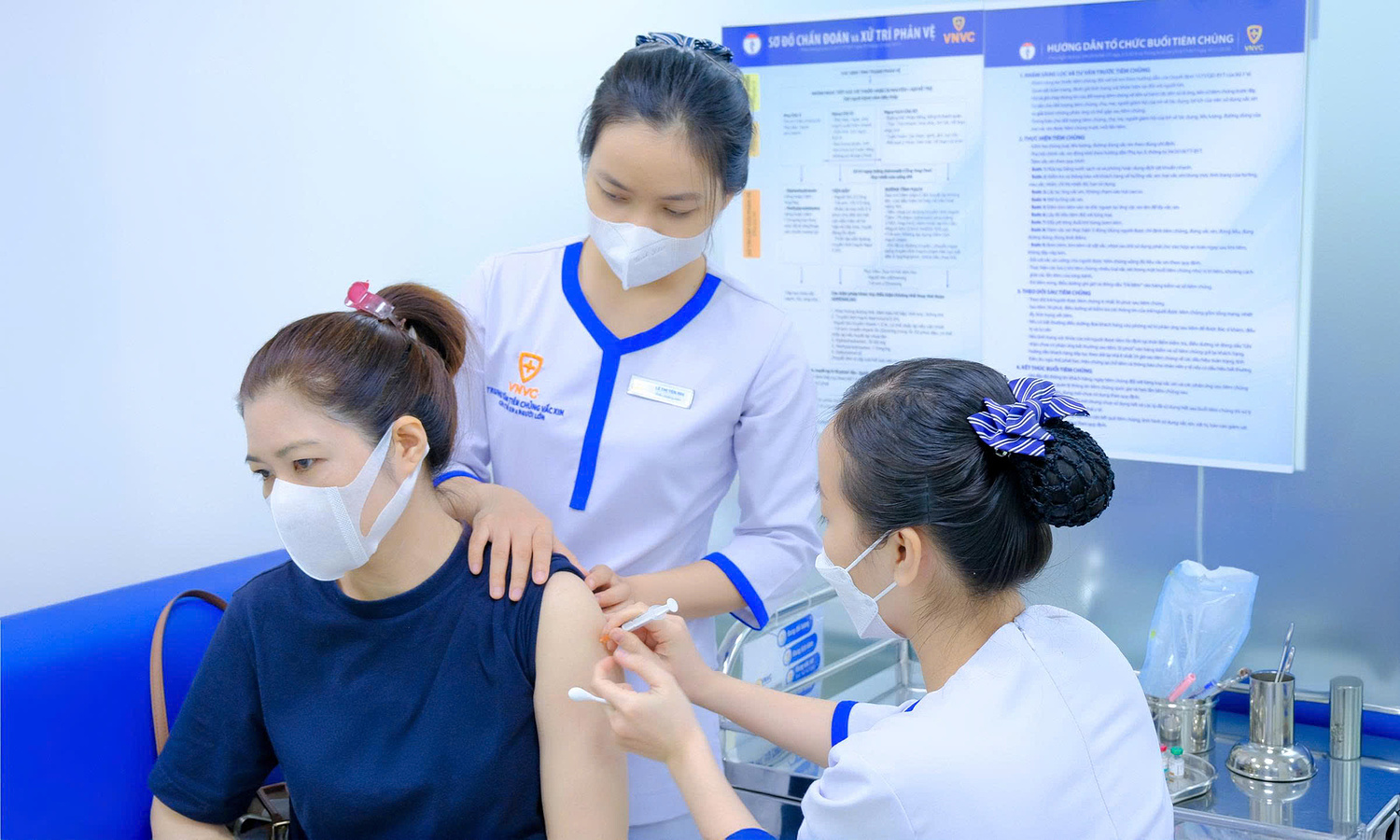On 23/6, Dr. Pham Kieu Nguyet Oanh, deputy head of the Vietnamese-British Infectious Diseases Department at the Ho Chi Minh City Hospital for Tropical Diseases, reported treating two patients with shingles-related encephalitis exhibiting atypical symptoms. Both patients presented with fever, headaches, altered mental status, seizures, limb weakness, and very small shingles lesions on their skin.
One patient, an 87-year-old woman from Lam Dong province, had a healing shingles lesion on her left chest. She was initially diagnosed with a stroke and later with encephalitis/meningitis of unknown origin at a local hospital.
The other patient, a 63-year-old man from Binh Thanh district, Ho Chi Minh City, had a faded shingles lesion on the inside of his right upper arm. His diagnosis was also unclear at the initial healthcare facilities, and he was transferred multiple times before arriving at the Ho Chi Minh City Hospital for Tropical Diseases.
Currently, both patients are receiving respiratory support, sedation, and antiviral medication. The female patient remains on a ventilator with no signs of consciousness after over a month of treatment. Similarly, the male patient has been treated for two weeks and is not fully conscious, requiring oxygen support.
 |
The male patient undergoing treatment for shingles-related encephalitis at Ho Chi Minh City Hospital for Tropical Diseases. Photo: Khanh Hoa |
The male patient undergoing treatment for shingles-related encephalitis at Ho Chi Minh City Hospital for Tropical Diseases. Photo: Khanh Hoa
According to Dr. Oanh, the hospital treats approximately 10 cases of shingles-related encephalitis or myelitis each year, all in serious condition. Cases with very small lesions progressing to encephalitis, like these two patients, are rare.
"The atypical symptoms make the disease difficult to recognize and treat accurately from the outset. At the hospital, doctors conducted cerebrospinal fluid tests to pinpoint the cause," Dr. Oanh said.
Dr. Oanh explained that specific antiviral medications for the varicella-zoster virus are available. However, many patients do not respond, resulting in prolonged and costly treatment, sometimes exceeding hundreds of millions of Vietnamese dong. Therefore, individuals with shingles who experience fever, headaches, altered mental status, seizures, or paralysis during or after the rash heals should seek immediate medical attention for prompt diagnosis and treatment.
Shingles is caused by the varicella-zoster virus, the same virus that causes chickenpox. After reactivation and causing shingles, the virus can travel along nerve fibers to the brain or enter the brain tissue through the bloodstream. It damages nerve cells, glial cells, and blood vessel endothelial cells in the brain, leading to encephalitis.
The virus can also cause inflammation and blockage of blood vessels, leading to stroke, cerebral ischemia, or cerebral hemorrhage, resulting in brain tissue damage and encephalitis. Older patients with underlying conditions like diabetes, hypertension, cardiovascular disease, or kidney failure are at higher risk.
According to the World Health Organization (WHO), the incidence of encephalitis as a complication of shingles is 1/33,000-50,000 cases, with a mortality rate of approximately 15%.
 |
Customers receiving the shingles vaccine at VNVC vaccination center. Photo: An Hoa |
Customers receiving the shingles vaccine at VNVC vaccination center. Photo: An Hoa
Shingles is more common in individuals aged 50 and above, those with underlying health conditions or weakened immune systems, and those taking immunosuppressants, such as individuals with HIV or those who have undergone organ or tissue transplants. The disease can also occur, though less frequently, in younger adults and children.
According to Dr. Bach Thi Chinh, medical director of the VNVC vaccination system, shingles patients may experience various complications, including postherpetic neuralgia (long-lasting nerve pain after the rash heals), pneumonia, hepatitis, keratitis (inflammation of the cornea), facial paralysis, tinnitus, and an increased risk of stroke and myocardial infarction.
For prevention, Dr. Chinh recommends maintaining a healthy lifestyle: a nutritious diet, stress management, adequate sleep, regular moderate exercise, good personal hygiene, and avoiding contact with individuals showing signs of the illness.
Shingles can be prevented with the Shingrix vaccine, produced by the pharmaceutical company GSK (Belgium). Individuals 50 years and older should receive two doses, two months apart. Those 18 years and older at high risk of shingles should receive two doses, one month apart. The vaccine is up to 97% effective in preventing the disease and reduces the risk of postherpetic neuralgia and other complications by up to 90%.
Hoang Duong












